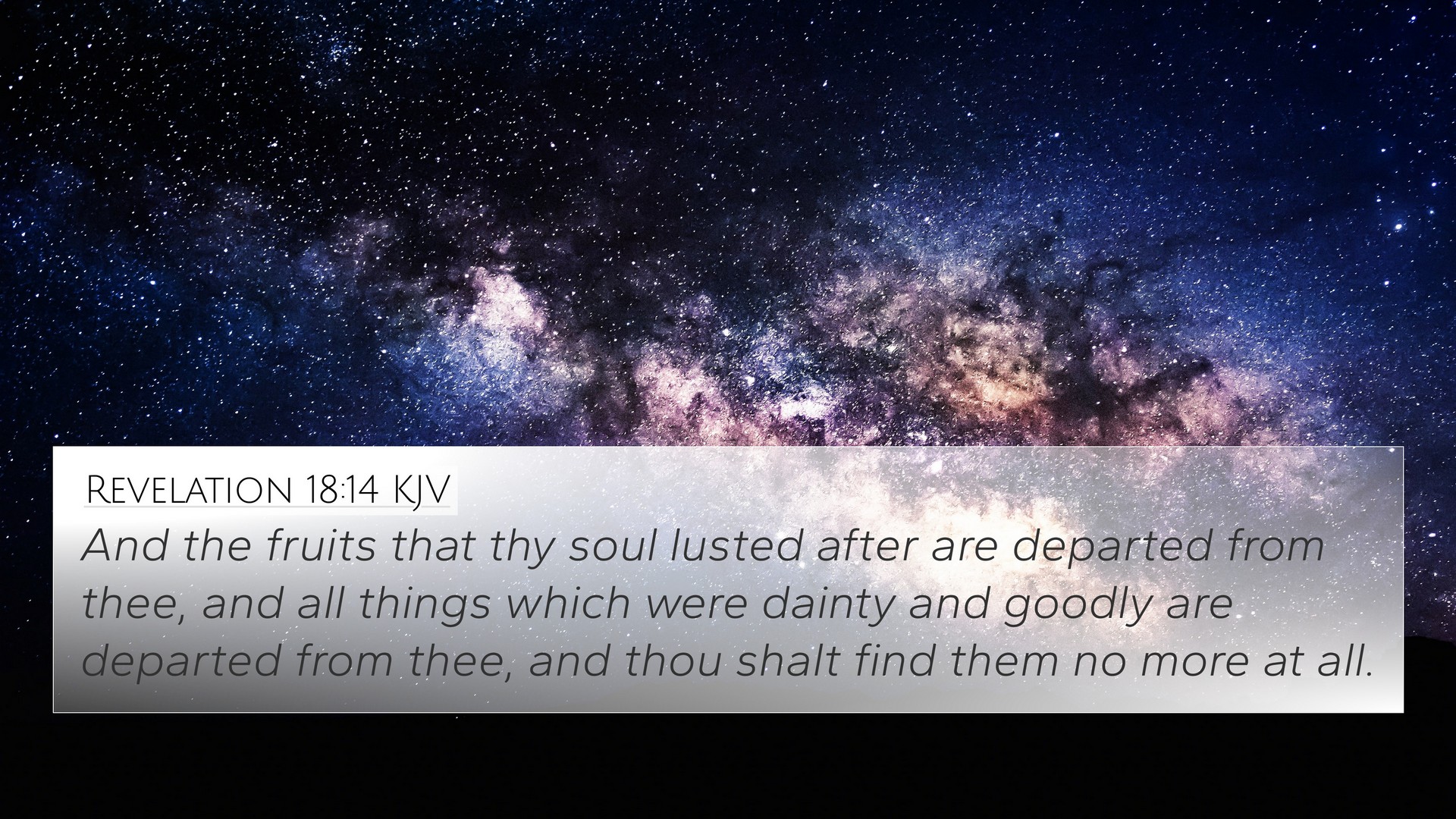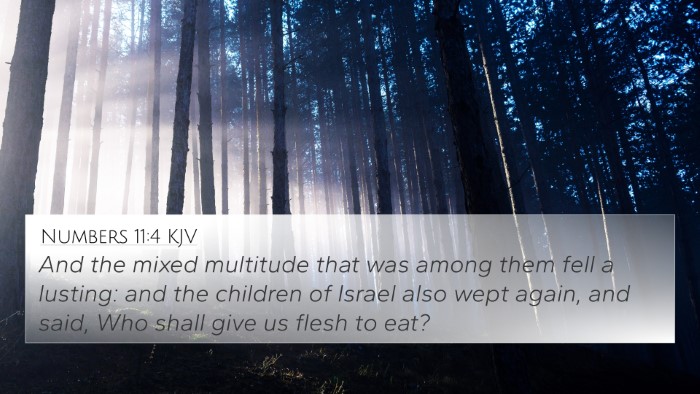Understanding Revelation 18:14
Bible Verse: Revelation 18:14 - "And the fruits that thy soul lusted after are departed from thee, and all things which were dainty and goodly are departed from thee, and thou shalt find them no more at all."
Insights from Public Domain Commentaries
This verse encapsulates a powerful message of loss and the consequences of indulging in the pursuits of luxury and decadence. The destruction of Babylon, representing materialism and idolatry, serves as a stark warning for believers.
Matthew Henry's Commentary
Matthew Henry emphasizes the futility of earthly pleasures in the face of divine judgment. He notes that the "fruits" which people idolize are not just physical goods but symbolize the transient nature of worldly desires. The message is not just about the literal loss of material wealth but a profound spiritual insight on the emptiness of pursuing earthly desires over heavenly treasures.
Albert Barnes' Commentary
Albert Barnes highlights the ultimate fate of those who invest emotionally and spiritually in the corrupt practices of the world. The verse illustrates how the riches and pleasures that once seemed so vital are ultimately fleeting and will be stripped away, leaving emptiness. He connects this to the broader theme of retribution that runs throughout the Book of Revelation, where God's judgment leads to the fall of the great city of Babylon.
Adam Clarke's Commentary
Adam Clarke points out that the lamentation over the loss of luxury and pleasure serves as a call to believers. It warns against the seduction of material wealth and invites reflection on what is truly valuable—namely, the eternal riches found in a relationship with God. Clarke encourages readers to consider what they hold dear and the implications of placing their affections on transient things.
Thematic Elements of Revelation 18:14
- Materialism - The emphasis on "fruits" and "dainty" things represents the entrapment of human desire for material goods.
- Divine Judgment - The fall of Babylon signifies God's ultimate justice against sinfulness and idolatry.
- Spiritual Loss - This verse serves as a somber reflection on the spiritual consequences of clinging to worldly things.
Related Bible Cross-References
- Matthew 6:19-21 - "Lay not up for yourselves treasures upon earth..." highlights the contrast between earthly treasures and heavenly investments.
- 1 John 2:15-17 - "Love not the world, neither the things that are in the world..." reinforces the idea that the world’s desires will ultimately perish.
- Revelation 18:16 - The immediate context of the verse stresses the total loss that comes upon Babylon.
- Luke 12:16-21 - The parable of the rich fool warns about placing hope in riches that can be taken away at any moment.
- James 4:4 - “Whosoever therefore will be a friend of the world is the enemy of God” speaks to the opposition between worldly pursuits and God’s will.
- Isaiah 47:7-9 - Foretells the fall of the proud and mighty, paralleling the destruction mentioned in Revelation.
- Philippians 3:19 - “Whose end is destruction, whose God is their belly, and whose glory is in their shame” emphatically warns against the internal crumbling that follows a materialistic lifestyle.
Connections between Bible Verses
The exploration of Revelation 18:14 leads to a greater understanding of the intertextual connections within the Bible. In particular, identifying connections between Old and New Testament writers helps deepen the analysis of themes such as divine retribution, human desire, and the contrast between the fleeting nature of earthly treasures and eternal value.
Detailed Cross-Reference Methods
Through the use of tools for Bible cross-referencing, one can explore these connections further. Employing a Bible concordance or a Bible reference resource can be instrumental in enriching one’s understanding. Here's how to actively engage with cross-references:
- Identify Themes: Look for thematic Bible verse connections related to wealth, judgment, and loss.
- Linking Scriptures: Engage in comparative Bible verse analysis by linking verses that deal with similar themes (e.g., materialism).
- Tracking Patterns: Observe how biblical themes develop, especially across different authors and time periods, to enrich your study.
Reflections on Application
As readers reflect upon Revelation 18:14 and its commentaries, it is crucial to consider personal application. The scripture offers a moral compass regarding the priorities of life. While material goods and luxuries can bring temporary satisfaction, true contentment and fulfillment come from spiritual riches and a relationship with God. In understanding and interpreting biblical themes through inter-Biblical dialogue, believers are encouraged to evaluate what occupies their affections and focus on lasting treasures.











